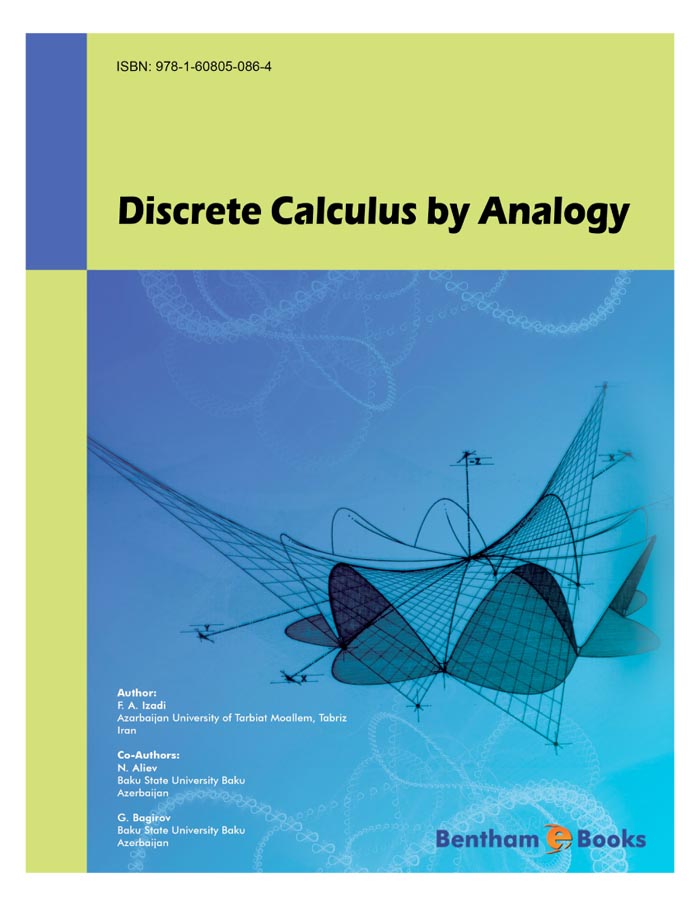Introduction
With its origins stretching back several centuries, discrete calculus is now an increasingly central methodology for many problems related to discrete systems and algorithms. The topics covered here usually arise in many branches of science and technology, especially in discrete mathematics, numerical analysis, statistics and probability theory as well as in electrical engineering, but our viewpoint here is that these topics belong to a much more general realm of mathematics; namely calculus and differential equations because of the remarkable analogy of the subject to this branch of mathematics. It is precisely this viewpoint which distinguishes this text from the previous ones. Although the topics are discrete, our approach is analytical. As in continuous mathematical analysis, we first introduce the main concepts such as the definition of a function, power and exponential functions, discrete differentiation and integration, series expansion, complex analytic functions and their integrals, the Cauchy theorem for analytic functions, as well as the harmonic functions in discrete cases. Then, we relate these concepts to the theory of discrete differential equations. The book serves to demonstrate the relationship of various aspects of mathematics with discrete differential equations. It should prove to be useful for mathematics graduates and researchers, regardless of their background on discrete calculus.

